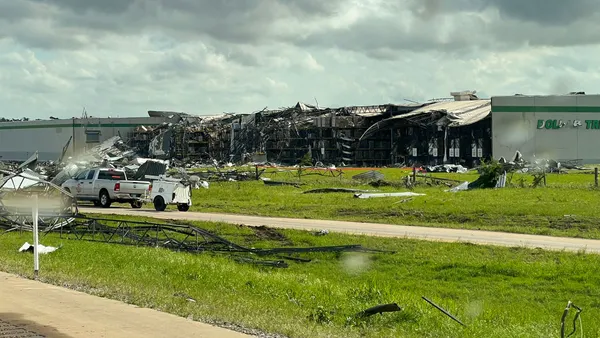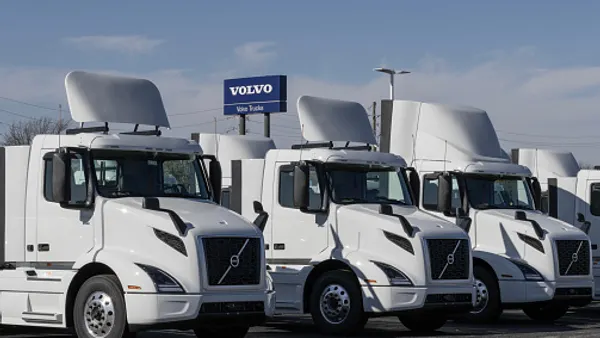Dive Brief:
- Hurricane Michael, a Category 4 storm, is expected to make landfall Wednesday afternoon near Pensacola, Florida.
- The U.S. Coast Guard has set condition Zulu at the port of Pensacola, Florida, meaning gale-force winds are imminent and the port is closed. The Gulf Intracoastal Waterway west of Perdido Pass and ports in Gulfport, Mississippi, Mobile, Alabama, and Pascagoula, Mississippi, were all declared at condition Yankee on Tuesday, meaning no new traffic is being accepted. The ports of Savannah, Georgia, and Charleston, South Carolina are at port condition X-Ray and the port of Wilmington, North Carolina remains at condition Whiskey.
- After drenching the Florida panhandle, Michael is expected to move Northeast toward Georgia and the Carolinas, where some ports and warehouses are still recovering from Hurricane Florence.
The Coast Guard's port conditions determine when ports close ahead of a major storm
| Whiskey | Gale force winds are expected to arrive at the port within 72 hours. | Port remains open to all commercial traffic. |
| X-Ray | Gale force winds are expected within 48 hours. | Port remains open to all commercial traffic. |
| Yankee | Gale force winds predicted within 24 hours | Vessels seeking to depart must arrange immediate departure. |
| Zulu | Gale force winds within 12 hours. | The port is closed. |
SOURCE: Trade Winds
Dive Insight:
Hurricane Michael may well be the most intense hurricane that the northern Gulf Coast has seen in a century, said Florida Governor Rick Scott in a press conference Wednesday morning. President Donald Trump authorized a state of emergency for Florida Tuesday.
Beyond Florida's shores, the proximity of Michael's predicted path threatens large sections of the energy supply chain in the Gulf. Energy companies evacuated 13 oil platforms in the Gulf of Mexico Monday, representing roughly one fifth of U.S. production, according to Reuters. Five drilling rigs were also moved to safety. Platts reported the storm is causing some volatility in oil prices.
"We are also thankfully not seeing any widespread fuel shortages or outages," said Scott. "The state emergency response team has been holding regular calls with the fuel industry and ports in Florida to ensure they can get gas to all areas safely."
While Florida's larger more easterly ports look to be out of the storm's direct path, the Port of Pensacola will almost certainly see substantial damage from the expected nine to 13-foot storm surge. The rest of the Gulf Coast can expect a storm surge of two to six feet.
Scott described the response ready to go into affected areas after the storm moves in: 1,000 search and rescue personnel, 3,500 national guard, 135 fish and wildlife officers, 100 state troopers from the Florida highway patrol with 300 more available are on call to begin the response.
"Engineering plans are being developed to rebuild vital areas of highway. We will work around the clock to make sure that roads and bridges reopen as quickly as possible," said Scott.













